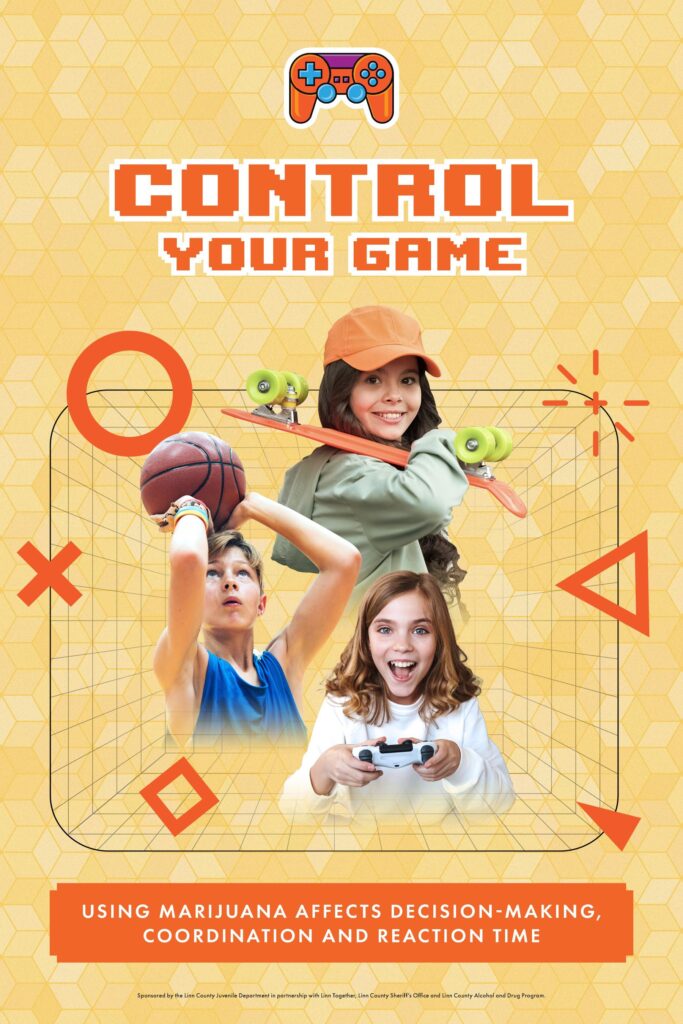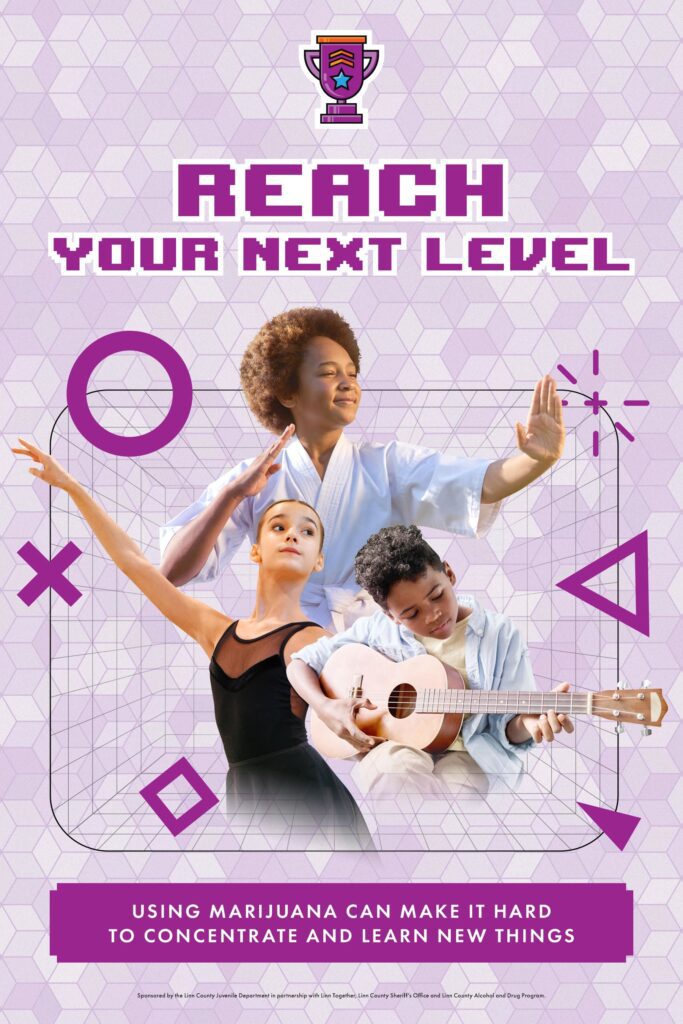For Youth
Know the risks of youth marijuana use
Marijuana use directly affects the parts of the brain responsible for decision-making, emotions, coordination and reaction time. In teens, the brain is actively developing and will continue to develop until about age 25. Using marijuana during adolescence and early adulthood can harm the developing brain.

Marijuana and Brain Health
Marijuana use directly affects the parts of the brain responsible for decision-making, emotions, coordination and reaction time.
In adolescents the brain is actively developing and will continue to develop until about age 25. Using marijuana during adolescence and early adulthood can harm the developing brain.
Marijuana and School Success
Teens who regularly use marijuana are more likely to have memory issues, difficulty learning, and lower math and reading scores.
The teen brain is actively developing and continues to develop until around age 25. Marijuana use directly affects the parts of the brain responsible for memory, learning, attention, decision-making, coordination, emotions, and reaction time.

Marijuana and Mental Health
Regular marijuana use has been linked to depression, anxiety, and suicide in teens.
The teen years are a time of growth, exploration, and risk-taking. Some risk-taking may foster identity development and independence (e.g., running for student council, asking someone out on a date).
However, some risk behaviors—such as using marijuana—can have adverse effects on a teen’s health and well-being.

Addiction Potential
About 3 of 10 people who use marijuana have marijuana use disorder. Some signs and symptoms of the disorder include trying to stop marijuana use but failing, or giving up important activities with friends and family in favor of using marijuana.
The risk of developing marijuana use disorder is higher in people who start using it during youth or adolescence and who use it more frequently.
Stay True to You Website
Stay True to You is a youth marijuana and vape prevention campaign brought to you by the Oregon Health Authority. View their resources below:
What’s True to You? Activities Find your passions and set your goals. Get started finding your passion with the activities on this page.

Join the STAND Youth Council
The Linn County STAND Youth Council is a group of high school students from throughout Linn County working to enhance positive school climate through media campaigns and activities that address underage drinking, tobacco use, and mental wellness.
More Featured Resources
-

Tips for Teens: Marijuana
Get the facts about marijuana. Source: Substance Abuse and Mental Health Services Administration (SAMHSA) Consejos para Adolesentes la Marihuana
-

3 Questions Linn County Middle School Students Ask about Marijuana
The Linn County Alcohol and Drug Prevention Program has provided substance use prevention classes in Linn County schools for over 20 years. We asked instructors Sarah Daniels and Shannon Snair to share common questions middle school students have about marijuana, and how to answer them. Is marijuana bad for my mental health? There is strong
-

Marijuana Risks (With Quiz)
Many youth today do not consider marijuana use a risky behavior. However, marijuana use comes with real risks that can impact a young person’s health and life. Source: Substance Abuse and Mental Health Services Administration (SAMHSA) Addiction: People can and do become addicted to marijuana. Approximately 1 in 10 people who use marijuana will become